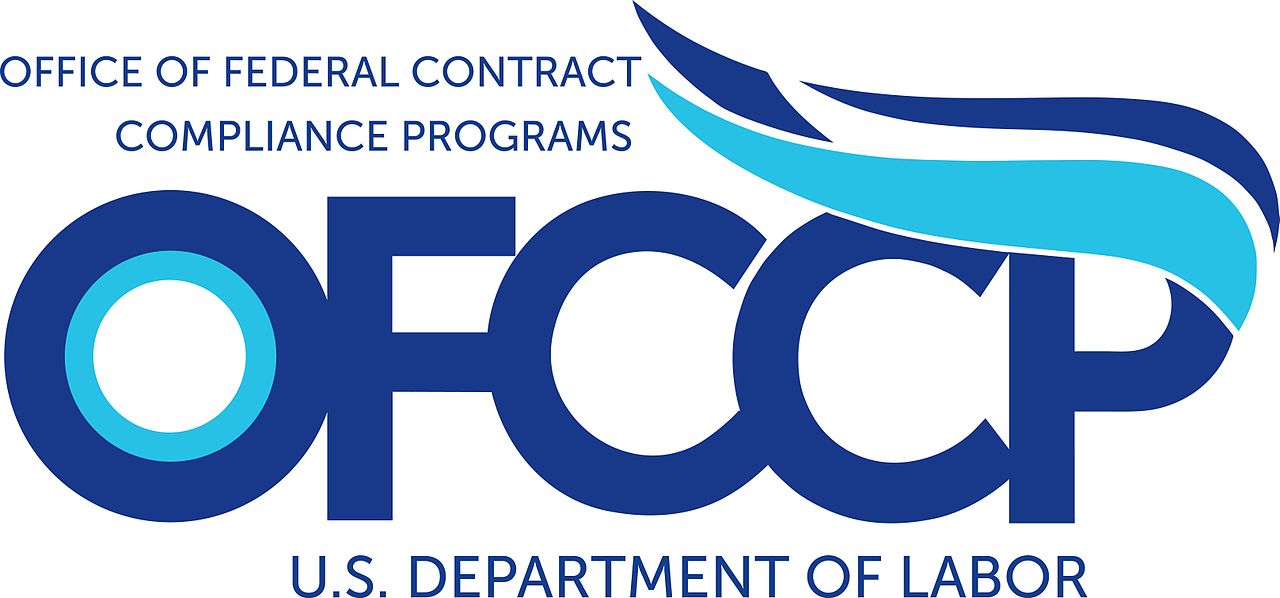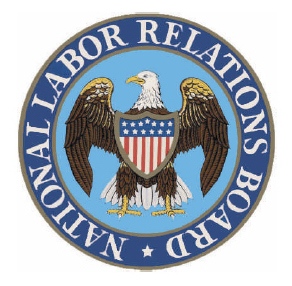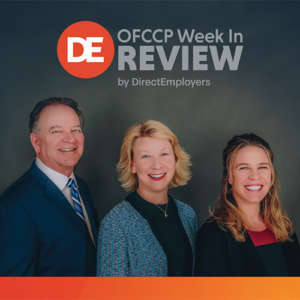Monday, October 21, 2019: OFCCP Seeks Renewal of Complaint Form

While purporting to simply renew the existing “Discrimination” Complaint form, the OFCCP Notice without comment seeks to expand the reach of its Complaint form to ALSO ALLOW applicants and employees to complain to OFCCP regarding a Contractor’s “failure to comply with affirmative action obligations” (despite any legal authority to do so):
“However, any employee of, or applicant for employment with, a federal contractor or subcontractor may file a complaint with OFCCP alleging discrimination or failure to comply with affirmative action obligations (emphases added). OFCCP encourages such employees and applicants to file their complaints by completing its complaint form (“Form CC-4”).
The current Office of Management and Budget approval for Form CC-4 expires on May 31, 2020.
You may submit written comments on or before Friday December 20, 2019.
Tuesday, October 22, 2019: NLRB Goes Electronic

The e-filing requirement became effective on October 21, 2019. However, manual submission is acceptable during a 90-day grace period.
Tuesday, October 22, 2019: Court to Decide Whether EEO-1 Component 2 Data Collection is Complete

Plaintiffs National Women’s Law Center and the Labor Council for Latin American Advancement last week filed an Opposition to the EEOC’s/OMB’s October 8, 2019 Motion, reported here. The EEOC’s earlier Motion seeks an Order from the Court confirming that the EEOC had fully complied with the April 25, 2019 Order as of the time of its filing and that the Component 2 hours worked and pay data collection was thus now “complete.” Plaintiffs now argue that OMB and the EEOC are not yet in compliance with the Court’s April 25, 2019 Order, which they argue would only occur when the EEOC has collected Component 2 pay data from at least 98.25% of all eligible EEO-1 report filers.
The dispute stems from the Court’s April 25, 2019 Order stating that, “the EEO-1 Component 2 data collection(s) will not be deemed complete, for the purpose of this Order, until the percentage of EEO-1 reporters that have submitted their EEO-1 Component 2 reports equals or exceeds the mean percentage of EEO-1 reporters that actually submitted EEO-1 reports in each of the past four reporting years” (Emphases added). In their earlier Motion, OMB and the EEOC had argued that since the mean percentage of EEO-1 reporters that actually submitted EEO-1 reports in 2014, 2016, and 2017 was 72.7% during the designated data collection periods for those years (OMB and the EEOC excluded 2015 data given the artificially low response rate in that year), Component 2 data collection is complete since 75.9% of eligible filers had submitted Component 2 data by October 8, 2019, exceeding the 72.7% mean from 2014, 2016, and 2017.
However, Plaintiffs contend that OMB’s and the EEOC’s calculation based on submissions during the “designated data collection periods” for 2014, 2016, and 2017 is an inappropriate calculation runway. Plaintiffs argue that the Court must include in the count of EEO-1 submissions from prior years ALL EEO-1 Reports filed, regardless of when eventually filed, including those filed late–AFTER the officially “designated data collection periods.”
NOTE: During the four-year period the Court set in its April 25, 2019 Order (2014 through 2017), the percentage of EEO-1 reports “actually submitted” (including “late filers” AFTER the “designated data collection periods”) was 100% for three of the years and 93% in the other year. Thus, plaintiffs argue that the mean percentage of EEO-1 reports “actually filed” over the four years is, in fact, 98.25%. Plaintiffs thus argue that the EEOC’s count of only the percentage of EEO-1 reports submitted during the “designated data collection periods” in 2014, 2016, and 2017 does not comport with the Court’s clear language in its April 25, 2019 Order to count EEO-1 reports “actually submitted” during those years. Plaintiffs argue, in other words, that the EEOC cannot refuse to count the number and percentage of EEO-1 filers who filed late.
Why Does the EEOC Care?
The EEOC reported in its October 8, 2019 Motion that it will cost the Agency $1.5M to hold open the EEO-1 Reporting portal for only six weeks ($250,000 per week) from September 30, 2019 (the designated reporting period for this year) to and through November 11, 2019, (as the EEOC has committed to do). The EEOC also reported in its October 8, 2019 Motion that it would have to pay $150,000/week after November 11, 2019, and would have to sign contracts with its reporting portal vendor in 6-week increments ($900,000 every six weeks).
Given the Court’s prior rulings clearly favoring greater collection and transparency as to the pay data, and emphasizing the importance of collecting Component 2 pay data, we believe it is unlikely the Court will grant OMB and EEOC’s Motion to deem collection of Component 2 pay data complete as of October 8, 2019. The EEOC’s October 8, 2019 Motion had also asked the Court to rule on the “completeness issue” on or before November 11, 2019, so the Agency would know whether to burn another almost $1 Million ($900,000) of taxpayer dollars.
So, look in the coming weeks for what appears will be the final decision of the District Court in the continuing Component 2 filing drama.
NOTE: OMB’s and EEOC’s appeal of Judge Chutkan’s April 25, 2019 Order remains pending, but will likely not be decided until deep into 2020.
Wednesday, October 23, 2019: OFCCP Hosted Town Hall for Academic Institutions

The 73-page guide provides a variety of information from a general overview of the statutes enforced by OFCCP to specific nuances in academia, including instructional staff, tenure and non-tenure track staff, and specialty areas such as athletics, medical, and online institutions.
The “Think-Pair-Share” format mirrored previous Town Hall events as the audience worked through a variety of questions to outline specific struggles Educational Institutions face when compiling Affirmative Action Plans and what possible solutions may exist to aid in the process. Topics discussed included search waivers, dual appointments, non-binary/unknown self-identifications, post-doctorate employees, Functional Affirmative Action Plans, and compensation.
OFCCP plans to recap and organize this discussion, along with all the other Town Hall feedback from 2019, into an Action Plan (sometime in December). Harvey Fort, Deputy Director, was proud to announce that the Agency has completed 16 the 18 action items from the 2018 Action Plan. Contractors should be on the look-out for the Ombudsman Program and Supply & Service TAG shortly. The Deputy Director also indicated the goal to host ten additional Town Halls in the upcoming year.
Thursday, October 24, 2019: AAAED Hosted OFCCP Listening Session

- Rulemaking on the Religious Exemption. NOTE: Director Leen explicitly stated that this Exemption “cannot allow discrimination on any of the areas OFCCP protects, which includes gender identity and sexual orientation.”
- Rulemaking on TRICARE for Veterans.
- Procedural improvements such as getting Directives into the regulations, thereby allowing for a comment period and public comments.
- Potentially encoding Functional Affirmative Action Programs through the Rulemaking process.
- Expansion of Focused Reviews including VEVRAA, promotions, and accommodations (religious and disability).
A widely popular idea from the previous day’s Town Hall was the use of a “Dear Colleague Letter” from OFCCP to Chancellors and other top personnel within Educational Institutions to aid EEO Professionals in their mission. Director Leen stated he was surprised to learn about the lack of knowledge and understanding of OFFCP among these officials. The Agency is looking into a similar approach. Look for this and other action items in the next OFCCP Town Hall Action Plan.
THIS COLUMN IS MEANT TO ASSIST IN A GENERAL UNDERSTANDING OF THE CURRENT LAW AND PRACTICE RELATING TO OFCCP. IT IS NOT TO BE REGARDED AS LEGAL ADVICE. COMPANIES OR INDIVIDUALS WITH PARTICULAR QUESTIONS SHOULD SEEK ADVICE OF COUNSEL.
SUBSCRIBE.
Compliance Alerts
Compliance Tips
Week In Review (WIR)
Subscribe to receive alerts, news and updates on all things related to OFCCP compliance as it applies to federal contractors.
OFCCP Compliance Text Alerts
Get OFCCP compliance alerts on your cell phone. Text the word compliance to 55678 and confirm your subscription. Provider message and data rates may apply.

